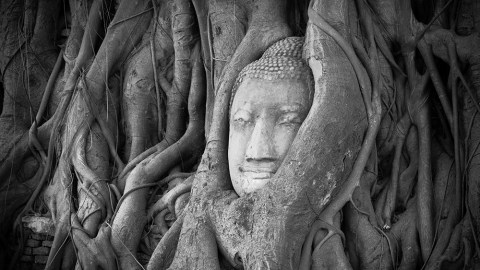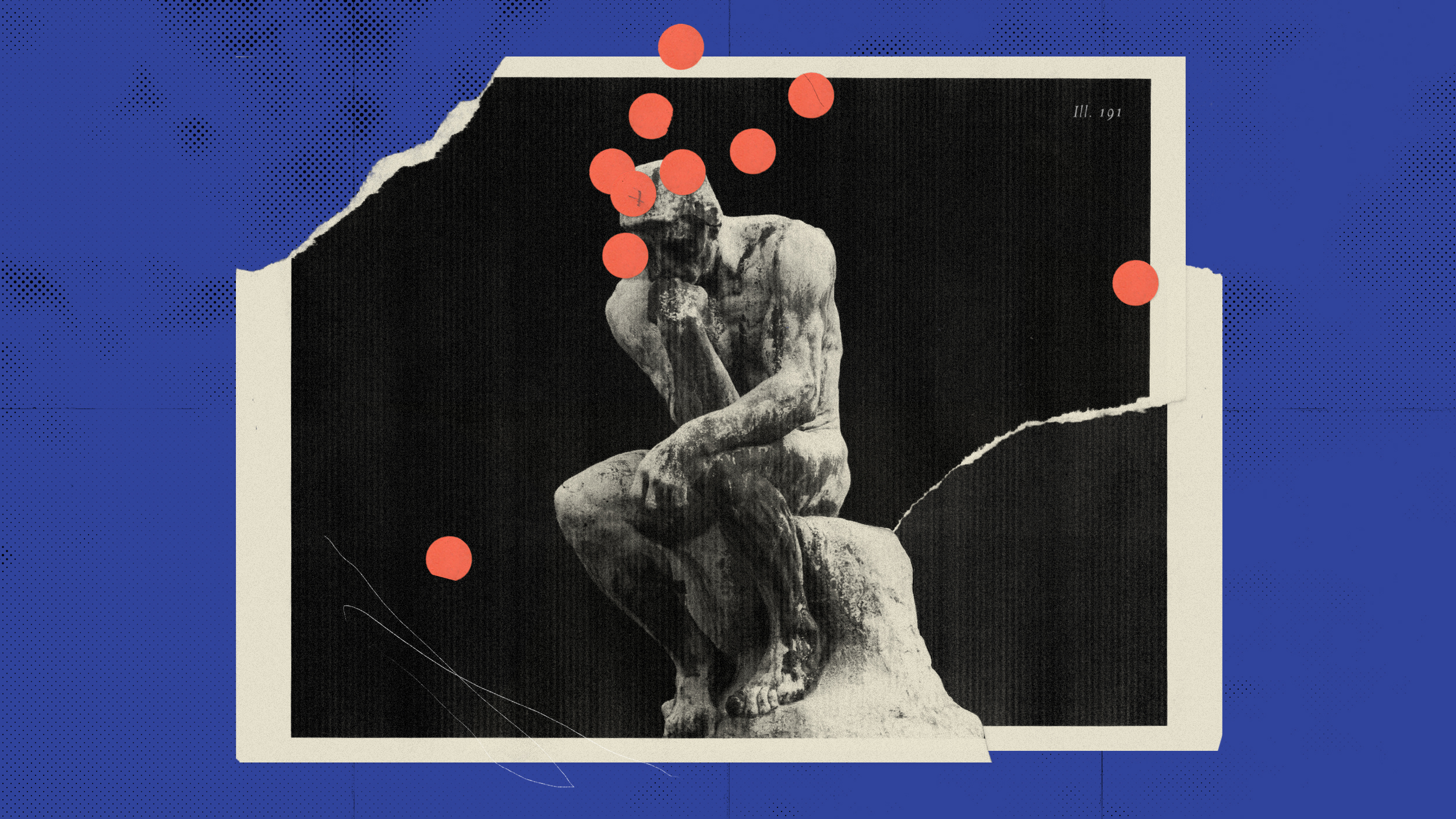Buddhism and the Brain: Mindfulness in Modern Times

Evan Thompson is a professor of philosophy at the University of British Colombia who specializes in cognitive science, Buddhism, and philosophy of mind. His latest book, Waking, Dreaming, Being: Self and Consciousness in Neuroscience, Meditation, and Philosophy, investigates the intersection of brain science and Buddhism in an honest, non-judgmental fashion that’s true to neuroscience and psychology without negating the metaphorical value of millennia-old aphorisms. With an emphasis on dreaming and the complex facets of consciousness, Thompson does a wonderful job at connecting old Buddhist and Hindu concepts with contemporary learnings in the realm of the human brain. I recently chatted with him about these topics.
Let’s get right to the heart of the matter: What is consciousness?
I use the word consciousness to cover three things: awareness, the changing contents of awareness — what we’re aware of from moment to moment when we’re awake, or when we’re asleep, or meditating — and then ways of identifying with certain contents of awareness as self. That threefold framework comes from the Indian philosophical tradition — Buddhist traditions, Hindu traditions. I use that to organize my discussion as to how the sense of self appears when we’re awake, when we’re falling asleep, when we’re dreaming. I also examine the question of the nature of awareness itself. The guiding image goes back to the earliest Upanishads: luminosity, or light. The thought is that awareness masks or discloses something in order for the mind to be able to grasp it. Light reveals something for us to be able to see it; awareness allows us to perceive something in a particular way.
One of my favorite lines from the book is, “Consciousness is something we live, not something we have.”
Is consciousness just a brain process, as many neuroscientists and biologists would say? Is it something that is not understandable, as many philosophers would argue, because we cannot bridge the gap between biology and first-person experience? Consciousness is not just another thing or property that the body and brain has in life that it doesn’t have in death. It’s the background to everything that we experience, including everything we do in science. In that sense, consciousness isn’t something that we have, as we have hands and feet, or as we have books and tables. If we try to turn it into an object, we inevitably destroy it. It has to do with our whole motive for being.
Is consciousness body-dependent?
There are two ideas I try to keep in balance throughout the entire book. One is that consciousness is contingent on our embodiment. When you look for consciousness it never shows up apart from some context of the body. At the same time, the body always shows up in our field of awareness. I try to work with that reciprocity or circularity as a way of resisting two tendencies. One is straightforward reductionism: Consciousness is just a process of the brain. The other is that no, consciousness is transcendent — in some spiritualist sense apart from the body. If you critically examine the evidence people put forward for the transcendence of consciousness, the evidence is lacking. But consciousness is something we live; it has a primacy so that it doesn’t just show up in a way that we identify with neuronal firings.
Another favorite line of mine is when you describe the self as a process.
The metaphor I use is a dance: A dance is a process, the process of dancing. In dancing you dance; the dance is no different than the dancing. I use this as a metaphor for the self: The self is a process; it’s something enacted, and it is no different from that enacting of self in the process of awareness. In the waking state that has to do with bodily action and perception. Of course in daydreaming the sense of self shifts: We enact a mental autobiographical sense of self when we project ourselves in the past or the future, so we identify with a particular content of our awareness, which is a mental image of the self. That’s a different enacting of the sense of self. Then when we fall asleep that sense of self starts to dissolve; the boundaries between self and other start to come apart. But then they reappear in the dream state, which is very strongly connected to memory, so we enact within the field of awareness the difference between what is the dream self and what is not the dream self. So all of that is a kind of ongoing process of enacting a sense of self in awareness.
These old Buddhist concepts are presented very differently today then during their inception. Do you see any problems with that?
A good example of that is the present discourse around mindfulness. The term in its original Buddhist context is that the word for mindfulness really has a sense of memory, holding something in mind—remembering to keep attention on a certain thing. It’s cognitively very rich. Whereas today the term is often used to mean not thinking at all or being present without judgment. I’m not saying that’s an invalid use of the term; it’s just a different sense of the term from a much, much older use.
With the mindfulness movement’s emphasis on moment-by-moment awareness, there seems to be very little discussion about what it’s being used for beyond stress relief or better cognitive functioning while at work. Can mindfulness be detached from ethics?
That’s a really important and in many ways difficult question. It depends what we mean by ethics and it depends what we mean by mindfulness. Sometimes in Buddhism some people will say, “Mindfulness is always an ethical notion,” while in the way it’s being used in the West today, it’s often used decoupled from ethics. There’s a sense in which that’s just not right. If you look just at the concept of mindfulness, there’s a debate in Buddhism about whether it’s a neutral mental process or whether it’s an intrinsically wholesome one. Different Buddhist traditions say different things on this. We shouldn’t assume there’s just one line in Buddhism and its relationship to ethics and misrepresent the complexity of that tradition.
That all being said, I’m very concerned with what I would call a decontextualized — or maybe the proper word would be recontextualized — consumerist notion of mindfulness, where mindfulness is about paying attention non-judgmentally in the present moment. That gets framed in terms of paying attention non-judgmentally in your little office cubicle so that you can take a mindfulness pause and get back to work for a corporation that is maybe contributing to global warming. Or the use of mindfulness under the heading of “mental fitness” in the context of the military. That’s really quite problematic. In the Buddhist tradition, even if the notion of mindfulness is not, technically speaking, to some schools “intrinsically wholesome,” it’s against the background of the whole Buddhist tradition, where there’s certain basic ethical considerations that are in place. That’s often missing in present uses of mindfulness, and that’s something we should be very concerned about.
Follow these links to listen to the full interview on iTunes and Soundcloud.
Image: Tzido Sun / shutterstock.com





